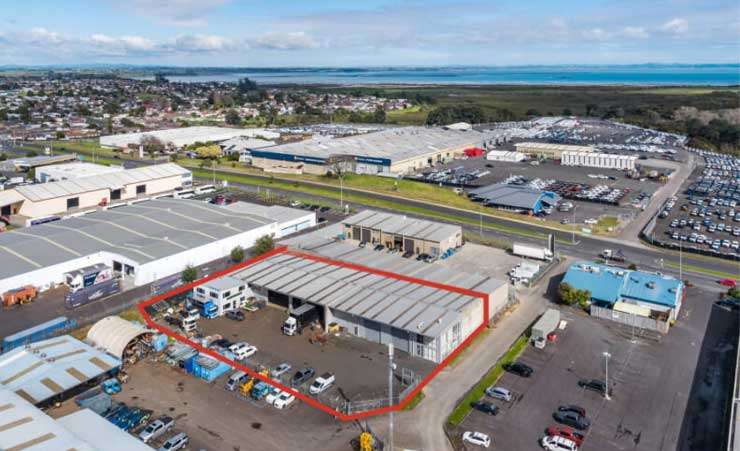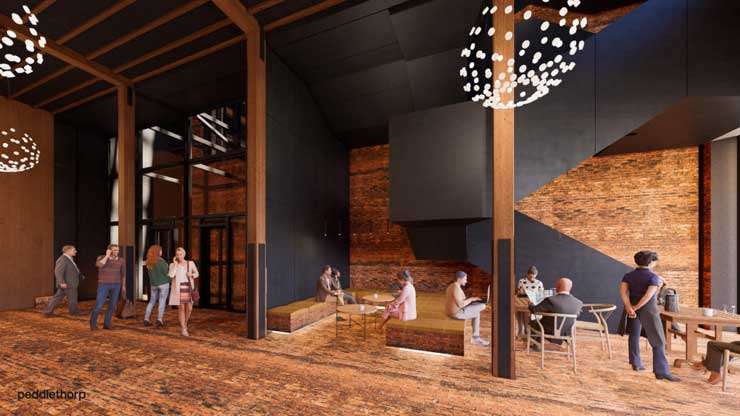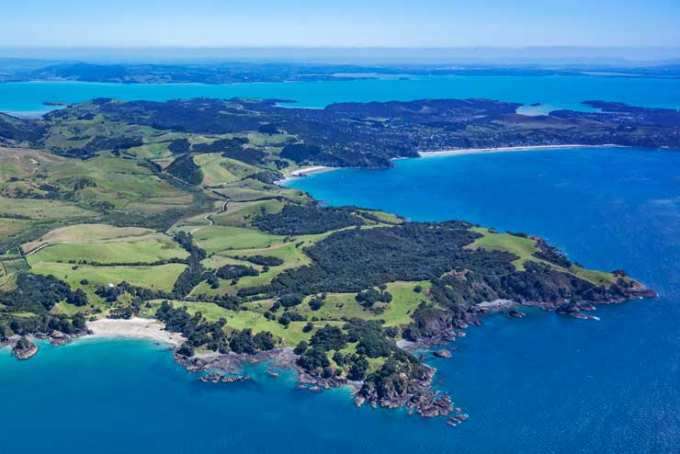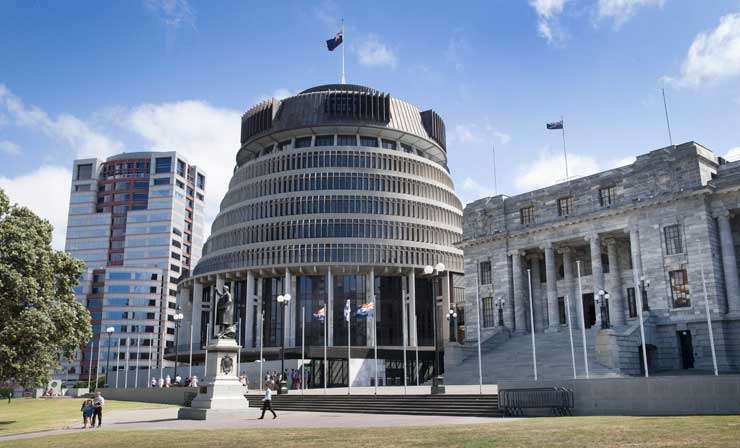Commercial leaders say the market not only flew through Auckland’s months-long lockdown but achieved record prices.
Todd Lauchlan, managing director of JLL, says one of the reasons for an apparent shrugging off of lockdown was because on the whole people feel they understand Covid now.
They saw the impact it had the last time and know what recovery should look like, he says.
They are also reacting to a more inflationary environment which typically supports real assets like property, and there is still plenty of confidence in the economy with low levels of unemployment.
Start your property search
Rising interest rates slowed momentum a little and could again in 2022.
“Some buyers have been a little bit less optimistic in terms of what they are prepared to pay for some assets, but it hasn't stopped deals happening and it hasn't stopped prices, particularly in the industrial sector, for example, hitting record numbers.”
Industrial warehousing has seen some big results and in the last few weeks JLL sold seven properties sold under the hammer.
In Auckland’s CBD, there are strong signs of life despite gloomy predictions.
The Barrington-Sofrana building at Britomart is case in point and a sign of the strength of the office market.
“It's an A-grade refurbishment of a character, heritage building. It's fully leased 12 months before completion and there's a number of high-quality tenants going in.
“I think that's an example for the right office space and a great location with really good amenities - there's really strong demand still.”
A lot of office projects which are only just completing are 100 per cent leased with new occupiers moving in and most of those commitments were made post the original lockdown – the space or the fit out might have changed but the desire to be there hasn’t, Lauchlan says.

A 1529sqm industrial warehouse in Auckland's Wiri recently sold at auction for $4.65m. Photo / Supplied
In areas outside Auckland, business continued without much impact from the lockdown and the regions benefit from domestic tourism which drives economic activity and investment.
“The regions are doing very well. The farm prices are really strong and there's a lot of activity so the underlying economy is still strong and I think at the end of the day, irrespective of lock down and Covid, if the economy is doing well people feel reasonably confident and the property market does well.”
Lauchlan says record prices in the industrial space have been driven in part by strong demand from tenants who want to become owner occupiers.
“They will look at it and say if I can invest some of my own equity instead of paying rent I can pay the mortgage.”

An artist's impression of the redeveloped Barrington-Sofrana building at Britomart, in Auckland's CBD. Photo / Britomart
Another factor driving high prices is a feeling that rents will continue to go up so while yields might be low people are confident rents will give them an increased yield over the holding period, and another factor is scarcity – “it’s a supply and demand issue, really.”
Ryan Johnson, national director commercial and industrial for Bayleys, says the year has been a huge one and that took everyone by surprise.
“I don't think anyone expected it after last year’s lockdown and then uncertainty and then this year's lockdown – it’s quite incredible.”
Also incredible is the amount of money out there, Johnson says.
Offshore buyers weren't here but Kiwi buyers were and investors included listed KiwiSaver providers, mum and dad investors, high net wealth individuals and active syndications.
“I think the interest from retail, or mum and dad investors, into commercial has been unprecedented as well.”
Buyers are proving to be “geographically agnostic”, he says.
“You’ve got Christchurch buyers looking at Auckland, you've got Auckland buyers looking at Hawkes Bay or Tauranga or Hamilton to find the right deal.”
Big deals for Bayleys include the Bethlehem Town Centre in Tauranga where the mall and development land sold for $102.5m in June, and Carey Bay on Waiheke Island, a 300ha farm purchased by a rich lister for $72m.
Johnson says Bayleys’ sales value was up 106 per cent year on year to $2.6 billion over only six months to September, with nearly 500 more transactions bringing the total at the start of December to 1,636.
That was down to confidence, with 19 per cent total returns for the quarter ending in September.

300ha on Waiheke Island, one of the biggest parcels of coastal land to come to market in recent years, was snapped up for $72m. Photo / Supplied
New Zealand total returns had mostly capital growth through the pandemic which was at odds with the rest of the world and provided significant confidence to the major Auckland market.
“Total returns of 19 per cent were underpinned by Auckland Industrial which delivered 26.6 per cent - Auckland industrial is the largest commercial market in New Zealand.”
Capital is a factor driving prices, Johnson says, with term deposits seeing outflows of $43.8 billion.
“Two per cent to 2.25 per cent retail interest rates and still not at pre-pandemic levels so real returns after tax are running at circa negative four per cent.
“This will continue well into 2023 with inflation running at 5.7 per cent in 2021 and forecast 3.4 per cent 2022.
Nearly $80b was on-call in October, 2019, compared to $140b this October.
Savings accounts were $85b but are now $122b resulting in “huge amounts of cash circulating in the economy and looking for an investment home.”
Andrew Stringer, Senior Managing Director for CBRE New Zealand, says the marked continued its momentum from the first half of the year because market participants had a greater understanding of global market trajectory, although the really aggressive pricing seen previously now applies mostly to quality industrial.
“The largest transaction for CBRE was Bowen House in Wellington, sold to Precinct Properties for $92 million, followed by a number of retail, office, industrial and land transactions in the $50+ million space.”
Stringer says the top end of the New Zealand commercial property market has solid depth due in part to the proportionately higher levels of private investors relative to other western countries.

Precinct Properties bought Bowen House (to left of the Beehive) for $92m. Photo / Mark Mitchell
“Private investors generally chart their own course and are there to make acquisitions when corporates look at disposal.
“Investors have been able to look beyond a one-to-three-month window that they didn’t have the capability to do last time.
“Our experiences in 2020 gave us a flavour of what the future might look like, which has given our local market confidence that we would be more likely to see short-term choppy waters rather than an extended storm.”
Brent McGregor, executive chairman for CBRE New Zealand, says clients continue to have confidence in the fundamentals.
“The industrial market continues to balance demand driven by high confidence in the underlying sector with short supply of very high-quality assets.
“This will continue. Being able to see through the current market conditions to a more stabilised operating environment has given them confidence to invest, even when the buyers are modelling some short-term bumps.
“In terms of CBRE’s large scale deals, 22 per cent of the assets (by value) sold have been to off-shore investors this year, versus 25 per cent last year and a historic average of around 40 per cent.
“There is no doubt the Government travel restrictions have impacted international investor participation, but with travel to Australia likely to open back up in Q1 2022 we are expecting some catch up activity next year.”























